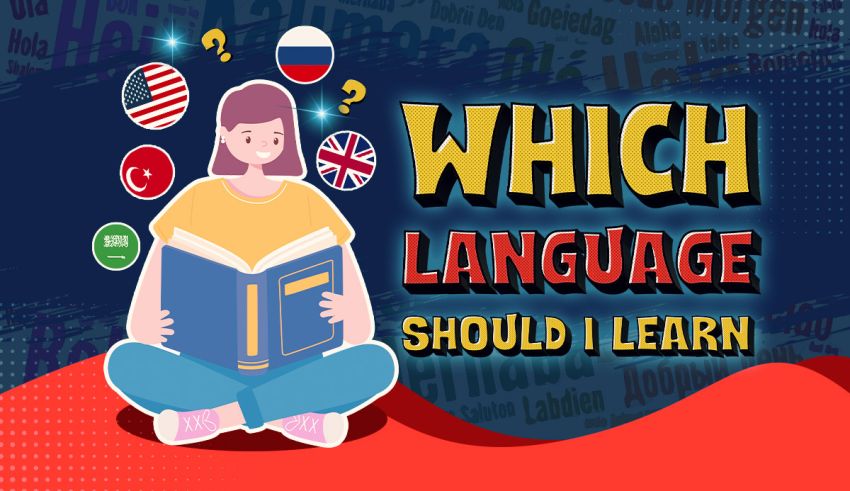If you are looking for L2 and ask, “Which language should I learn? ” This quiz reveals the best options based on your native tongue, personality, and interests.
What Language Features Should You Learn Next?
Let’s say your goal is to learn more than one language. In that situation, you ought to study a language that is easy to moderately difficult and has resources close to where you reside. It should be linguistically similar to your existing language or languages. The greatest choices for native English speakers are Frisian, Dutch, and Spanish because they fit the aforementioned requirements.
selecting the language to study via a quiz
Even after considering all the influencing elements, selecting a language to learn remains difficult. That’s why we put the effort into making an expert-level quiz. It examines everything to decide what to learn, from your existing language to your objectives and goals.
It’s difficult to learn multiple languages. Some people even liken the process to picking a major. However, with the aid of our linguistic test, you’re likely to make the finest choice with a satisfaction rate of at least 70%.
What occurs when you participate is as follows.
Examine your native tongue.
According to the majority of linguists, learning a language that is grammatically similar to your original tongue is simpler. Before suggesting any languages to learn, the quiz aims to grasp the fundamental grammatical rules you already understand.
See what’s best to learn based on your personality.
What language, according to my personality, should I learn? “is a frequently asked query among multilinguists. Even though it’s not a reliable filtering strategy, we’ve got you covered. In order to provide you even better results, our quiz does review some of your personality traits and features.
Determine why you want to study.
It’s essential to know why you want to study a new language. Are you doing it for fun, are you making a career decision, or are you considering moving abroad? The quiz tries its best to comprehend your objectives and provide solutions in line with your objectives.
Comparing your preferences
With this in mind, the questionnaire is made to value your interests and provide findings that you’ll like. “Learning is most successful when it helps you comprehend something you already love.” Despite its complexity, learning Japanese is frequently preferable for someone who enjoys anime than learning French or, for example, German. This is due to the fact that your passion is more important than the lexical similarity.
Discover the best language to study first.
The computer reviews your responses during the quiz’s final phase, compares them to our database, and outputs a list of personalized options. We don’t want to restrict you to just one suggestion, unlike the majority of other quizzes. Therefore, based on your responses, the results frequently include a few languages we believe you ought to learn.
The most often used languages according to student enrollment
Checking out what other language learners are doing can help you determine which language to learn. By the number of students enrolled in colleges and universities, Spanish, French, German, and Japanese are currently the most popular languages. Surprisingly, American Sign Language is also one of the preferred languages, with over 107,000 students in 2016.
According to the level of difficulty, choose the language you should learn.
The amount of time needed to speak and understand the new language is the main factor for many learners. A fantastic map illustrating the time required to learn a foreign language can be found at Openculture.com. You can use it to choose a difficult or simple language to study as well as to organize your linguistic journey. (For more details, see the table below.)
Overlooking the question of “Which Language Should I Learn? ”
To become fluent in a language, you must put in at least 500 hours of diligent study. So, you should consider all the factors before jumping into learning a foreign tongue. It would be preferable for you not to act rashly. It’s also a good idea to think about these issues beforehand.
What linguistic category do the language(s) you now speak fall under?
Selecting the easiest languages to learn depends on your knowledge of language families. You learn a language more quickly the closer it is to the family of your native languages. The primary families are Indo-Iranian, Hellenic, Celtic, Italic, Balto-Slavic, and Germanic.
– Are you going to use the new language frequently?
According to certain research, pupils may lose some of their fluency after six months of not using the language. Therefore, when choosing what to learn, make sure you’ll actually use it; else, you risk forgetting it.
– Are the resources easily available where you reside?
Of course, you can quickly access the appropriate resources for practically any language with the aid of the internet. But you still want to pick an option with available and accessible schools you could attend in-person.
– Does the language you pick excite you?
You cannot learn anything you detest. So it’s usually a better idea to stick with the vocabulary, grammatical constructions, and sounds that make you excited about the language.
– Are you comfortable with the culture associated with that particular language?
“To have another language is to have another soul,” said Charlemagne, King of the Franks. So, don’t opt to learn a foreign dialect so long as you don’t like the culture that it comes with.
Are You Currently a Polyglot? Take the Quiz Now
Remember that there are more than 7000 languages spoken in the world. Therefore, don’t anticipate a prompt response to questions such, “What language should I learn? You already have the fastest method, which is taking our quiz.
Disclaimer
None of the organizations mentioned in the “Which Language Should I Learn Quiz” are affiliated with QuizExpo, and all of the test’s findings are generated entirely by artificial intelligence.
For more personality quizzes check this: What Should I Name My Baby Boy Quiz.





